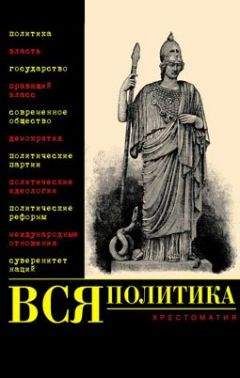pathocracy; quite the contrary, they even embark upon a more
intensive life in the new society. These values progressively
cleanse themselves of patriotic buffoonery, and their principal
contents become more real in their eternal meaning. If forced
by necessity, the culture of the country in question is concealed
in private homes or disseminated via conspiracy; however, it
continues to survive and develop, creating values which could
not have arisen during happier times.
As a result, such a society’s opposition becomes ever more
enduring, ever more skillfully effected. It turns out that those
who believed they could impose such a system, trusting that it
would then function on the pathocracy’s autonomic mecha-
nisms, were overly optimistic. Imposed pathocracy always
remains an alien system to the extent that, if it should fall in the
country of its birth, its endurance within the subjugated nation
would only be a matter of weeks.
Artifically Infected Pathocracy
and Psychological Warfare
If a nucleus of this macrosocial pathological phenomenon
already exists in the world, always cloaking its true quality
behind an ideological mask of some political system, it irradi-
ates into other nations via coded news difficult for normal peo-
ple to understand, but easy to read for psychopathic individu-
als. “That’s the place for us, we now have a homeland where
our dreams about ruling those “others” can come true. We can
finally live in safety and prosperity.” The more powerful this
nucleus and the pathocratic nation, the wider the scope of its
inductive siren-call, heard by individuals whose nature is corre-
spondingly deviant, as though they were superheterodyne re-
ceivers naturally attuned to the same wave-length. Unfortu-
nately, what is being used today is real radio transmitters in the
hundreds of kilowatts, as well as loyal covert agents of pathoc-
racy networking our planet.
Whether directly or indirectly, i.e. by means of deviant
“agents”, this call of pathocracy, once appropriately “decked-
out”, reaches a significantly wider circle of people, including
both individuals with various psychological deviations and
POLITICAL PONEROLOGY
217
those who are frustrated, deprived of the opportunity to earn an
education and make use of their talents, physically or morally
injured, or simply primitive. The scope of the response to this
call may vary in proportion, but nowhere will it represent the
majority. Nonetheless, the home-bred spellbinders who arise
never take into account the fact that they are not able to enrap-
ture the majority. 103
Various nations’ different degrees of resistance to this activ-
ity depend upon many factors, such as prosperity and its equi-
table distribution, the society’s educational level (especially
that of the poorer classes), the proportion of participation of
individuals who are primitive or have various deviations, and
the current phase of the hysteroidal cycle. Some nations have
developed immunity as a result of more direct contact with the
phenomenon, something we shall discuss in the next chapter.
In countries just emerging from primeval conditions and
lacking political experience, an appropriately elaborated revo-
lutionary doctrine reaches its society’s autonomous substratum
and finds people who treat it like ideational reality. This also
occurs in nations where an over-egoistical ruling class defends
its position by means of naively moralizing doctrines, where
injustice is rampant, or where an intensification of the hysteria
level stifles the operation of common sense. People who have
become accustomed to revolutionary catchwords no longer
watch to make sure that whoever expounds such an ideology is
a truly sincere adherent, and not just someone using the mask
of ideology to conceal other motives derived from his deviant
personality.
103 Noticable in any country. In the present day, when the United States is
well on the way to becoming a full-blown pathocracy, and is thus the source
of the contamination, spellbinders for the deviant reality promote “American
style” economics and “culture,” and are even viewed by their fellow coun-
trymen as “America-ophiles”. Most people do not understand that the first
step to becoming part of the Global pathocracy that America is attempting to
impose on the world is to become part of the economic system as it is formu-
lated in America. A recent example of a country rejecting this maneuver is
France’s rejection of the European Constitution, a document focusing on the
neo-liberal transformation of the European economy along the lines of the
U.S. model. [Editor’s note.]
218
PATHOCRACY
In addition to these spellbinders, we can find another kind
of preacher of revolutionary ideas, one whose status is basi-
cally linked to the money he receives for his activities. How-
ever, it is unlikely that its ranks include people who could be
characterized as psychologically normal with no reservations
on the basis of the above-mentioned criteria. Their indifference
to the human suffering caused by their own activities is derived
from deficiencies in their perceived value of societal links or
their capacity to foresee the results of their activities.
In ponerogenic processes, moral deficiencies, intellectual
failings, and pathological factors intersect in a time-space
causative network giving rise to individual and national suffer-
ing.
Any war waged with psychological weapons costs only a
fraction as much as classical warfare, but it does have a cost,
especially when it is being waged simultaneously in many
countries throughout the world.
People acting in the name of pathocracy’s interests may ef-
fect their activities in parallel, under the banner of some tradi-
tional or other ideology, or even with the assistance of a con-
tradictory ideology battling the traditional one. In these latter
cases, the service must be performed by individuals whose
response to the call of the pathocracy is sufficiently vehement
so as to prevent the self-suggestive activities of the other ideol-
ogy they are using from weakening the links with their actual
hopes for power.
Whenever a society contains serious social problems, there
will also be some group of sensible people striving to improve
the social situation by means of energetic reforms, so as to
eliminate the cause of social tension. Others consider it their
duty to bring about a moral rejuvenation of society. Elimina-
tion of social injustice and reconstruction of the country’s mor-
als and civilization could deprive a pathocracy of any chance to
take over. Such reformers and moralists must therefore be con-
sistently neutralized by means of liberal or conservative posi-
tions and appropriately suggestive catchwords and paramoral-
isms; if necessary, the best among them has to be murdered.
Psychological warfare strategists must decide rather early
on which ideology would be most efficient in a particular coun-
POLITICAL PONEROLOGY
219
try because of its adaptability to said nation’s traditions. After
all, the appropriately adapted ideology must perform the func-
tion of a Trojan horse, transporting pathocracy into the country.
These various ideologies are then gradually conformed to one’s
own original master plan. Finally, off comes the mask.
At the right time, local partisans are organized and armed,
with recruits picked from dissatisfied localities; leadership is
provided by trained officers familiar with the secret idea as
well as the operative idea concocted for propagation in the
country in question. Assistance must then be given so groups of
conspirators adhering to the concocted ideology can stage a
coup d’état, whereupon an iron-fisted government is installed.
Once this has been brought about, the diversionary partisans’
activities are stymied – they are made out to be patsies - so that
the new authorities can take credit for bringing about internal
peace. Any hoodlum who cannot or will not submit to the new
decrees is “gently” invited before his former leader and shot in
the back of the head. This is the new reality.
This is how such governmental systems are born. A network
of pathological ponerogenical factors is already active, as is the
inspirational role of essential psychopathy. However, that does
not yet represent a complete picture of pathocracy. Many local
leaders and adherents persist in their original convictions
which, albeit radical, strike them as serving the good of a much
larger proportion of formerly abused persons, not just a few
percent of pathocrats and the interests of a would-be world
wide empire.
Local leaders continue to think along the lines of social
revolution, appealing to the political goals they truly believe in.
They demand that the “friendly power” furnish them not only
the promised assistance, but also a certain measure of auton-
omy they consider crucial. They are not sufficiently familiar
with the mysterious “us-and-them” dichotomy. At the same
time they are instructed and ordered to submit to the dictates of
unclear ambassadors whose meaning and purpose are hard to
understand. Frustration and doubt thus grow; their nature is
ideological, nationalistic, and practical.
Conflict progressively increases, especially when wide cir-
cles of society begin to doubt whether those people allegedly
220
PATHOCRACY
acting in the name of some great ideology do in fact believe in
it. Thanks to experience and contact with the pathocratic na-
tion, similarly wide circles simultaneously increase their prac-
tical knowledge about the reality and behavioral methods of
that system. Should such a semi-colony thus achieve too much
independence or even decide to defect, too much of this knowl-
edge could then reach the consciousness of normal man’s coun-
tries. This could represent a serious defeat for pathocracy.
Ever-increasing control is thus necessary until full pathoc-
racy can be achieved. Those leaders whom the central authori-
ties consider to be effectively transitional can be eliminated
unless they indicate a sufficient degree of submission. Geopo-
litical conditions are generally decisive in this area. That ex-
plains why it is easier for such leaders to survive on an outlying
island than in countries bordering the empire. Should such
leaders manage to maintain a larger degree of autonomy by
concealing their doubts, they might be able to take advantage
of their geopolitical position if the conditions are amenable.
During such a phase of crisis of trust, circumspect policy on
the part of normal man’s countries could still tip the scales in
favor of a structure which may be revolutionary and leftist, but
not pathocratic. However, this is not the only missing consid-
eration; another primary one is the lack of objective knowledge
about the phenomenon, something which would make such
policy possible. Emotional factors, coupled with a moralizing
interpretation of pathological phenomena, frequently play
much too great a part in political decision-making.
No full-fledged pathocracy can develop until the second up-
heaval and the purging of its transitional leadership, which
was insufficiently loyal thereto. This is the counterpart of a
showdown with the true adherents of the ideology within the
genesis of the original pathocracy, which can then develop, due
both to the appropriately imposed leaders and to the activity of
this phenomenon’s autonomous ponerogenic mechanisms.
After the initial governmental period, brutal, bloody, and
psychologically naive, such a pathocracy thereupon begins its
transformation into its dissimulative form, which has already
been described in discussing the genesis of the phenomenon
and the force-imposed pathocracy. During this period not even
POLITICAL PONEROLOGY
221
the most skillful outside policy can possibly undermine the
existence of such a system. The period of weakness is still to
come: when a mighty network of the society of normal people
is formed.
The above lapidary description of an infectious imposition
of pathocracy indicates that this process repeats all the phases
of independent ponerogenesis condensed in time and content.
Underneath the rulership of its incompetent administrative
predecessors, we can even discern a period of hyperactivity on
the part of schizoidal individuals mesmerized by the vision of
their own rule based on contempt for human nature, especially
if they are numerous within a given country. They do not real-
ize that pathocracy will never make their dreams come true; it
will rather shunt them into the shadows, since individuals with
whom we are already familiar will become the leaders.
A pathocracy thus generated will be more strongly im-
printed upon the subjugated country than one imposed by
force. At the same time, however, it maintains certain charac-
teristics of its divergent content, sometimes referred to as
“ideological” although it is in fact a derivate of the different
ethnological substratum upon which its scion was grafted.
Should conditions such as a nation’s numerical plentitude, wide




